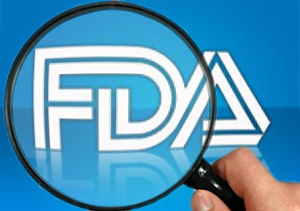
Consumer advocacy groups urged the U.S. House of Representatives to take a stronger hand in promoting safety in medical devices during a hearing today on the re-authorization of the medical device user fee act.
Industry officials and venture capitalists highlighted the role the med-tech sector plays in creating high-paying jobs and generating innovative, life-saving products. Consumer advocates were having none of that, chiding the user fee negotiations for putting safety on the back burner under pressure for faster review times.
The latest agreement between the FDA and the device industry on the third go-around for the user fee program proposes to collect $595 million over 5 years, double the amount agreed to in the previous generation of the Medical Device User Fee & Modernization Act, but some say that’s not enough.
"During the course of negotiations with industry, the FDA indicated that it needed resources of between $770 million to $1.15 billion to implement the performance goals desired by industry," Lisa Swirsky, senior policy analyst at patient advocacy group Consumers Union, told members of the House Energy & Commerce Committee’s Subcommittee on Health this morning. "The fees paid by medical device makers are currently so modest that even doubling of the fees is a small price to pay when considering that these devices may make companies millions to billions of dollars."
Device makers and stakeholders weren’t quite so optimistic, warning the panel that America’s place as the global leader in medical technology depends on maintaining a swift and effective FDA.
"While we are making progress in improving patient care and see immense future opportunities to provide jobs and contribute to long-term economic growth, we are also worried," David Perez, Terumo BCT president & CEO and AdvaMed board member, told House members. "Delays in product approval, inconsistency in the review process, and the resulting downstream effects on investment and innovation have undermined the competitiveness of our industry and harmed patient access to new treatments, diagnostics, and cures.”
"Today, America is the world leader in medical technology. But there are warning signs." Perez added. "A key factor in our loss of competitiveness has been the decline in the FDA’s performance in ensuring timely patient access to safe and effective medical devices."
Device lobby AdvaMed has praised the user fee plan that it and other device groups signed off on with the FDA, with AdvaMed president & CEO Stephen Ubl calling the deal a “game-changer” for both the agency and the industry.
"We believe the agreement will accelerate the development and approval of safe and effective treatments and diagnostics, helping FDA, industry and most importantly, patients," Ubl said in prepared remarks. "We believe it is in the interests of patients and the American economy that this agreement functions well, and we will work with FDA to help make that happen."
Consumer Union’s Swirsky had little love for the concord between industry and the federal watchdog agency.
"The word ‘safety’ does not appear once in the minutes from the meeting where industry and FDA came to agreement," she said in testimony today. "At a time when the device industry has seen large-scale safety failures of some of it products, such as surgical mesh and metal-on-metal hips, it is troubling that the main focus of conversations between industry and the agency that regulates it is on speeding up review times."
Consumer Union, the policy and advocacy arm of Consumer Reports, petitioned the FDA last week to implement more stringent oversight of medical devices in the new user fee agreements, to prevent the public from being used "as guinea pigs when it comes to something as important as a medical implant."

